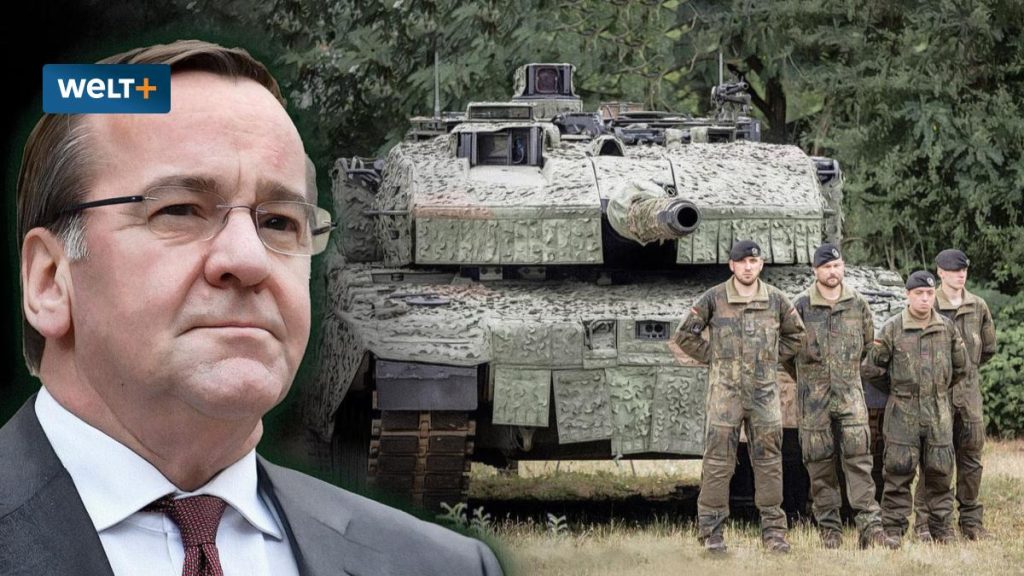Defense Minister Boris Pistorius of the Social Democratic Party (SPD) is set to introduce a new model for military service in the near future. The proposal includes three options for a return to active military duty. The concepts have been exclusively obtained by Welt am Sonntag. So far, only one opposition party has shown support for the plan.
One of the options in the proposed model is a voluntary service program for individuals who are interested in serving in the military but do not want to commit to a long-term career. This option aims to attract new recruits and diversify the pool of candidates for military service. Another option includes a short-term conscription program, similar to the previous mandatory military service system. This program would require individuals to serve for a specified period of time before returning to civilian life.
The third option in the proposed model involves a reserve force that would be activated in times of need. This would allow the military to quickly expand their manpower during emergencies or conflicts. The concept of a reserve force aims to provide a flexible and cost-effective solution to address security challenges that may arise. The implementation of this model would require cooperation and support from various stakeholders.
The presentation of the new Wehrdienstmodell comes at a time when the German military is facing recruitment challenges and issues with retention. The proposed options seek to modernize the military service system and adapt to the changing needs of the armed forces. The support from opposition parties will be crucial in determining the feasibility and success of the new model. Pistorius and his team are optimistic about the potential benefits of the proposed changes.
The introduction of a new Wehrdienstmodell signifies a shift in the approach to military service in Germany. The concepts put forward by Defense Minister Pistorius aim to create a more flexible and dynamic system that can respond effectively to security threats. The government will need to engage in discussions and negotiations with various stakeholders to garner support and address any concerns regarding the proposed changes. The success of the new model will depend on the cooperation and collaboration of all parties involved.
As the details of the new Wehrdienstmodell are revealed, it is expected that there will be debates and discussions within the government and among the public. The potential impact of the proposed changes on recruitment, retention, and overall military readiness will be closely monitored. The support of opposition parties could play a significant role in shaping the future of military service in Germany. Ultimately, the success of the new model will be determined by its effectiveness in addressing the challenges facing the German military in the 21st century.















